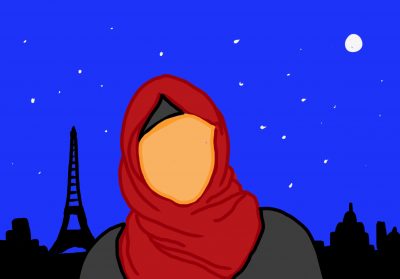In France, the word laïcité –– the constitutional separation of church and state –– is considered the backbone of the republic. But for as long as laïcité has existed in France, it has also been controversial at the national and international levels.
According to an article by France news source, “The Local,” French secularism is defined by four core principles: “state neutrality; respect for all beliefs and equality of all citizens before the law without distinction of religion; freedom to worship; [and] the absence of official worship.”
Naturally, we would assume that secularism would result in lower acts of violence that are motivated by religious reasons — if secularism means separating religion and affairs of state, then, equally, the state should not interfere in religious affairs.

However, this is certainly not the case in France. The constitutional concept of laïcité has divided the country, leaving certain communities — Muslims, in particular— to feel out of place.
First, it is important to acknowledge that laïcité — though originally rooted in the French government’s distrust of the Catholic church — has been weaponized to perpetuate Islamaphobia against French Muslim communities.
In 2004, the law was expanded to ban any visible symbol of religious expression in public schools. In practice, the enforcement of the law tended to target Muslim communities, whether the government realized it or not.
In 2015, the French Council of State upheld a ruling prohibiting a Muslim student from attending class because her skirt was too long and thus carried too much religious significance. And last April, the French government voted to ban Muslim girls under the age of 18 from wearing the hijab.
Hate crimes against Muslim communities in France increased by 53% in 2020. This may suggest that laïcité has prompted Islamophobia and violence against Muslim communities.
Perhaps, in 19th century France, where it was mostly a Catholic state, laïcité was simpler to understand as it was designed to prevent the sway of the Church. But in modern France, where society is more heterogeneous and multi-cultural, laïcité becomes too thorny.
As such, the 2015 Charlie Hebdo case is a case that speaks to the complexity of these issues and its history.
The year 2015 was, without a doubt, one of the worst in the history of modern France. On January 7, 2015, two masked gunmen attacked the offices of the French satirical magazine, Charlie Hebdo, killing a total of twelve people and marking the beginning of the three days of terror.
Charlie Hebdo has earned its reputation for its controversial and satirical cartoons, naturally provoking others to feel attacked and insulted. In this case, disrespectful and Islamophobic cartoons of the Prophet Mohammed prompted the attacks, embodying French secularism in the way that it is not afraid to criticize religious institutions.
Some have argued that these caricatures, although provocative, are simply freedom of expression. Others have argued that these caricatures indulged in racism and islamophobia, which, in hindsight, appears to be the most plausible. That is not to say that these cartoons justify the Charlie Hebdo attacks, but they are certainly not innocent.
The chain of events that followed the terrorist attacks at the Charlie Hebdo offices prompted the #JeSuisCharlie (#IamCharlie) movement, encapsulating the French psyche but, also, dividing the country even more.
In an editorial about the Hebdo case, Elisabeth Badinter, a feminist philosopher, stated she was unafraid to be named an Islamaphobe and deflected accusations of racism by stating these accusations were really an attack on French secularism. But, I think there’s a deeper problem, which is France’s struggle to promote Freedom of Expression without hateful speech because, so far, these laws appear to target and negatively impact Muslim communities.
There were more terrorist attacks in France following the Hebdo attacks. But none of these terrorist attacks justify the rampant Islamophobia inherent within French secularism.
The question of why these terrorist attacks occur is impossible to answer. Many different factors influence the rise of global terrorism. French secularism and widespread Islamophobia may play some part in the prompting of these attacks, but it would be incorrect to fall back on Islamophobic rhetoric and blame an entire religion for these isolated attacks.
Regardless, I think France should focus on removing Islamaphobic laws to improve the quality of life of Muslim communities in France, many of whom are alienated and targeted in French society because of laïcité. The modern iteration of laïcité may remove more freedoms than it protects, and French politicians should stop pretending as if these laws can be neutral when, in reality, they are being used to target an already marginalized community.






















































































































